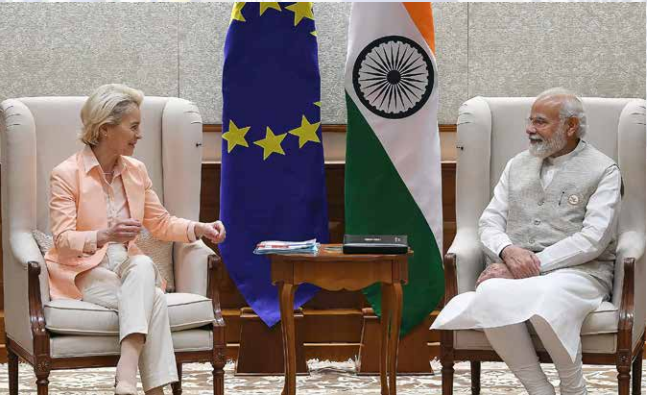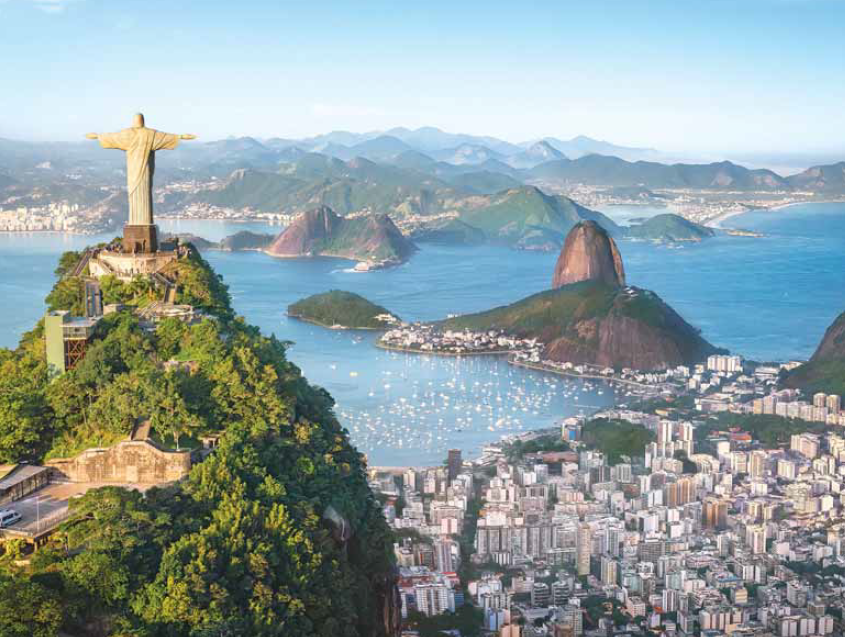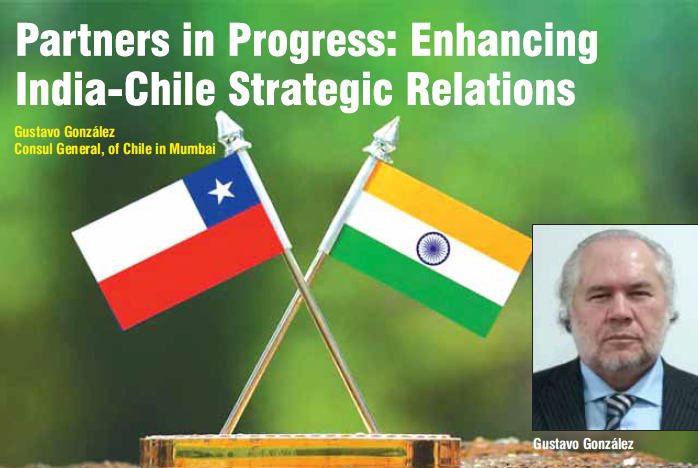In a no-holds-barred interview, Milan Hovorka, Ambassador of the Czech Republic to India, tells Ivor Vaz about the many factors that play a key role in strengthening the bonds between the two countries…
Relations between India and the Czech Republic date back to even before diplomatic relations were established in 1947. Could you describe how the partnership between both countries was formed?
I want to underline the point that you just made – the Czech Republic shares a traditional and longstanding partnership with India, dating back to decades ago. In fact, Czechoslovakia (as we were known back then, before the country split) was one of the first countries to establish diplomatic relations with India in 1947. But foreign relations between the Czech Republic and India were established even earlier, with the opening of a Czech consulate in Mumbai in 1921.

‘Indology’ as a subject was founded in Czechoslovakia and the first Indo- Czech Association was founded by Netaji Subhash Chandra Bose in 1934, even before WWII. Indian first Prime Minister Pandit Jawaharlal Nehru has visited Czechoslovakia many times. When India got its independence, Czechoslovakia was one of the first countries to officially recognise the Republic of India and establish diplomatic relations. In 1964, an economic treaty was signed between the two governments on providing a loan to India for huge investment boost. In 1972, Prague hosted the visit of the Indian Prime Minister Indira Gandhi. Bilateral trade was growing and many Indian Presidents also visited Prague.
The beginning of the ‘90s saw some important milestones with India’s policy of opening up the economy to the outside world. At the same time in Czechoslovakia, we embarked upon the process of fundamental, social and economic changes. Even after the country split in two in 1993, high level visits between the Czech Republic and India have been maintained on a regular basis. Then came our membership in the European Union (2004), which represented another important impetus to strengthening our relations.
Thus, our bonds with India run deep, both in time and substance. As Ambassador of the Czech Republic to India, I am committed to strengthening our relations. I am very passionate in doing my utmost to take this relationship to a higher level.

How would you describe Indo-Czech relations today?
The partnership between Czech Republic and India is based on commonly shared devotion to the ideals of democracy, liberty and human rights – and is further cemented by mutual commitment to work together for common prosperity alongside joining hands with the international community to face global challenges of today’s world, such as climate change, terrorism, nuclear security, cyber security, migration and poverty. As Ambassador of the Czech Republic to India, I am very passionate in strengthening our relations. In general, we can say that Indo-Czech relations are entering a new phase of cooperation, and going from strength to strength, which is visible with increased strategic interaction and cultural diplomacy.
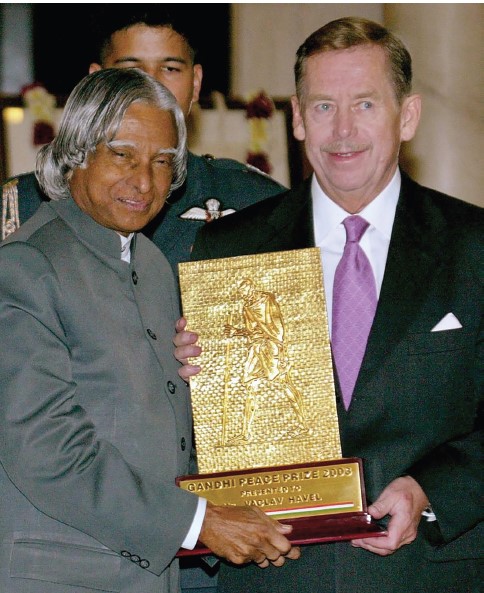
The Czech Republic one of the leading trading partners of India among the new member states of the European Union. How do you view the economic relationship between our countries?
Trade relations are the backbone of any strategic relationship in the modern world. Our economic and commercial ties date back to the beginning of the 20th century. For decades both India and the Czech Republic have continued efforts for strengthening these relations through frequent exchange of trade and business delegations. After the foundation of the Czech Republic, the economic relations between both the nations continue to flourish. Czech companies such as Skoda and Bata built more and more factories and are appreciated by Indians for their quality. In 2018, bilateral trade stood at US$ 1.5 billion, and it has been growing every year. Also I would like to point that the Czech Government ranks India among the 12 priority countries for promotion of mutual commercial investment. And that’s because we can perfectly relate to and understand each other very well. The Czech economy is doing extremely well, and with the combination of its investor-friendly policies, it is creating trade and investment opportunities, not only for domestic companies but for our foreign investors. The growth of the Indian economy is the reason why Czech exporters are finding a vast market in India to sell their goods. I am happy to see that on both sides we have companies that are ever so keen to strengthen existing ties and establish new businesses. It is a twoway avenue.
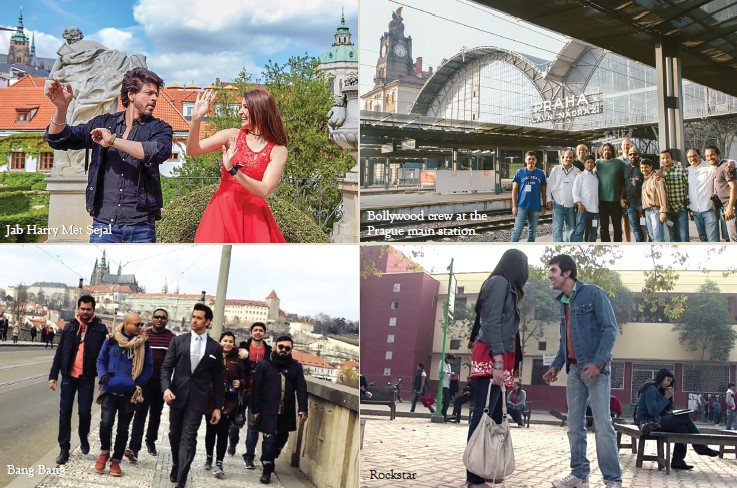
Can you elaborate?
Indian companies are doing
extremely well in the Czech Republic. I am pleased that a number of Indian companies have taken the decision to enter the Czech market and develop their business activities in various sectors, be it automobiles, textiles, food processing, pharmaceuticals or IT.
At the same time, we are following closely what is going on in India. We are considering ways and means how to be part of India’s vision here. Czech firms have participated in the development of India’s industrial potential, mainly by deliveries of equipment for the power industry, engineering and other sectors. Given the competence of Czech companies, we are seeking to establish to what extent can they fit the initiatives that have been put in place here – whether it is ‘Make in India’, ‘Smart Cities’, ‘Digital India’, ‘Green India’, start-ups, etc. These are all areas where we believe we can be very good partners to India. Importantly, Czech companies realise that India is a price sensitive country. And since Czech companies are price competitive, they have been able to strike a proper balance between quality and price.
There is one area of concern for me though. Quite often we import your products via intermediaries in European countries. The point I am making is: Why don’t we streamline bilateral relations? Why don’t we develop direct partners for India in the Czech Republic and vice versa? In today’s areas of global value chains, this is a critical factor.
Among the member states of the EU, your country has one of the lowest unemployment rates. Why is that?
We have a low unemployment rate because the Czech Republic belongs to the fastest growing economies in Europe today. It is one of the most industrialised countries, with the highest industry-to-GDP ratio (about 30%). And I believe that we have reached this level because we have been able to learn lessons from our past, which was not necessarily positive. But even in that period of transformation, we have been deploying tremendous efforts to encourage dialogue between different segments of the society, with employers on one side and employees on the other. Today, the Czech Republic has developed an advanced high-income social market economy and social policies that support a welfare state. Since the 1990s, the country has become the most stable and prosperous of the post-Communist states of Europe.
There is one more element which might be of interest to you. With ‘Make in India’, you are also making efforts to transform this country into a manufacturing hub. That is a good sign. If you have strong industrial fundamentals, you will be able to weather the consequences of any global economic crisis.
Despite having some world class universities, the number of overseas students is relatively low, especially Indian students. How are you planning to address this?
Today, the Czech Republic is an increasingly popular destination for international study, with over 42,000 foreign students currently enrolled at its universities. EU statistics released last year list our country as the one of the most popular study destination for students in Europe. There are certainly many perks for those choosing to study in the Czech Republic: well-esteemed universities, affordable tuition fees and living costs, and last but not least, a vibrant and colourful cultural life.
As Ambassador, I am taking important strides to promote Czech education. Only recently we organised a Higher Education Fair in New Delhi wherein seven Czech universities participated. The objective was to promote direct interaction with prospective Indian students. I am truly happy to see that many Indians are willing to make Czechia their study destination. This is the result of active promotion of university-to-university cooperation and mutual student exchanges. At this point I would like to mention that young Czechs can study Hindi, Sanskrit and Tamil in Prague at Charles University, the oldest university in the Central Europe, and that their Indian counterparts can learn the Czech language at the Department of Slavonic and Finno- Ugrian Studies at the University of Delhi.
On our webpage, we have a section dedicated to studying in the Czech Republic. It is very user-friendly. Interested students can easily identity the areas of their interest and explore possibilities. All in all, I believe we have a lot to offer. And I believe in the years to come we will have more students from India.
How about tourism? Are there plans to increase in footfalls of Indian tourists to the Czech Republic?
I can tell you that the numbers are growing. But first and foremost, we have to build the brand of the Czech Republic. How many people know that we have 12 UNESCO-listed World Heritage sites, often referred to as the 12 Czech Wonders of the World?
On its part, the Embassy actively promotes the Czech Republic as an ideal tourism destination for Indian tourists. Since my arrival, I opened several new Visa Application Centres. Earlier we had none. The decision to open new Visa Application Centres was taken in order to ensure a bigger comfort for visa applicants who had to travel all the way to the Embassy in Delhi. Today, we have Visa Application Centres in Mumbai, Chennai, Hyderabad, Bengaluru and Kolkata. We plan to have a few more in the coming months. Also, I have established the practice of regular contact with local tour operators. We invite them to join us from time to time, to hear from them and get their feedback.
My one regret is there is no dedicated agency for Czech tourism in India today. But it is my endeavour to restore our tourism department to promote tourism on a day-to-day basis. Also, we don’t have direct flights between the two countries (though we did until the early ‘90s). But given the regular traffic comprising students, tourists, businesses, workforce and air cargo, I believe sooner than later the situation will correct itself.
Isn’t Bollywood tourism playing its part in upping the Czech impression?
Let me bring to your attention that we’ve had over 150 Hollywood films shot in the Czech Republic, including ‘Mission Impossible’.
However, I am Ambassador to India, and I would like to see more films from India shot in my country. Pease understand, I am talking not just about Bollywood, but also regional cinema. Indian cinema presents us a unique opportunity to showcase our country to a billion people. For us, it is not just about economic value, but it also benefits those who live in the areas where films are being shot.
Big ticket films like Rockstar, Bang Bang and Jab Harry Met Sejal have already been shot in Prague, and hopefully many more will be picturised there as well. We’ve had Bollywood superstars like Shah Rukh Khan, Anushka Sharma and Ranbir Kapoor visit our country to shoot. What better brand ambassadors can we ask for? These films and several others have played a very important role in showcasing the Czech Republic to Indian audiences, which, in turn, is a big driver for tourism.
I can’t let you go without you telling us something about your charismatic first President Václav Havel. He is, after all, one of the rare recipients of two prestigious Indian awards – the Mahatma Gandhi Peace Prize and the Indira Gandhi Peace Prize…
President Václav Havel was a Czech writer, philosopher and statesman, and is considered to be one of the most important intellectuals of the 20th century. From 1989 to 1992, he served as the last President of Czechoslovakia. He then served as the first President of the Czech Republic (1993–2003). He visited India twice – in 1994 and 2004. On the last occasion, he was awarded the Mahatma Gandhi Peace Prize by the Government of India for his outstanding contribution towards world peace and upholding human rights, and for keeping alive the flame of democracy when his country was under communist rule. Upon his death, the international airport in Prague was renamed to Václav Havel Airport in 2012. If you look at the Embassy’s Facebook profile, you will see a beautiful picture of President Havel with India’s then President, Dr. A.P.J. Abdul Kalam, who was an inspirational leader as well. Even so, I believe, in his lifetime, President Havel did a lot for our country and for the community of democratic states to which both India and the Czech Republic definitely belong.



